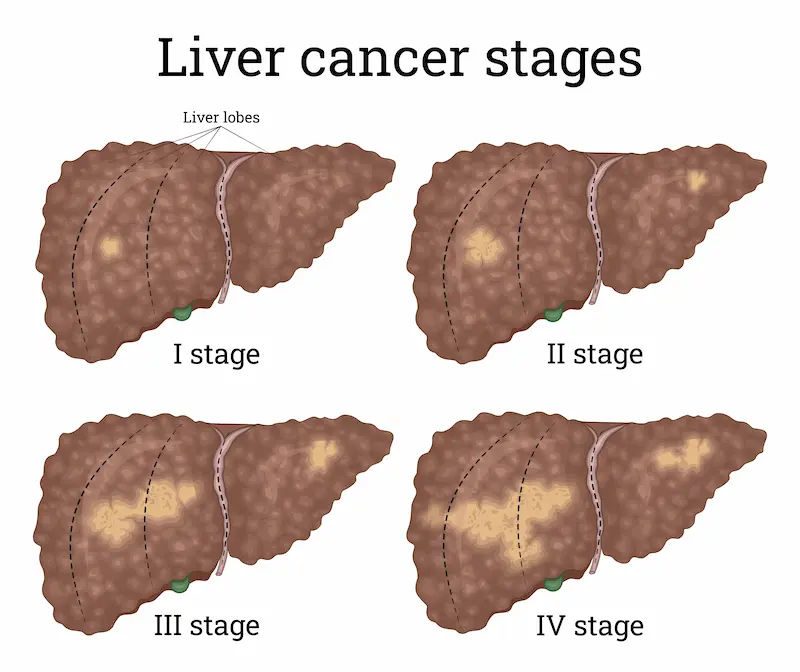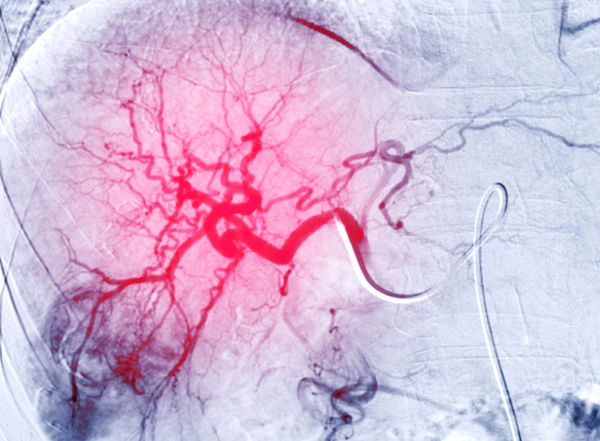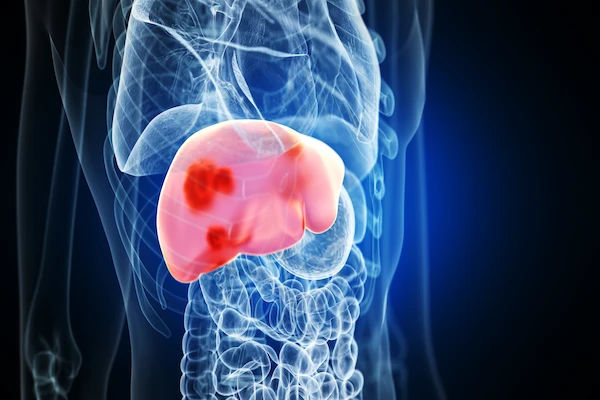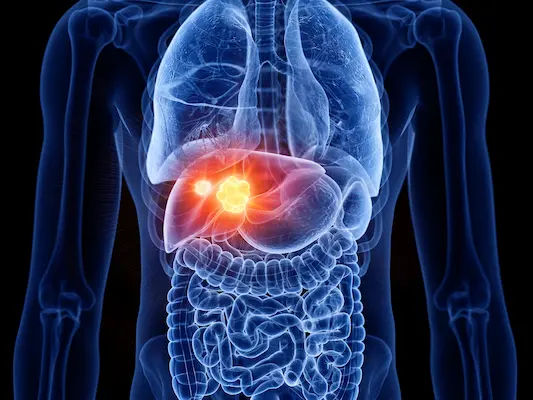Understanding Liver Cancer: Key Risk Factors and How to Prevent It
Learn about liver cancer, its key risk factors, and effective prevention strategies. Discover how lifestyle choices, infections, and chronic liver conditions impact your liver health and what you can do to protect it.

Written by Dr. Rohinipriyanka Pondugula
Reviewed by Dr. Shaik Abdul Kalam MD (Physician)
Last updated on 13th Jan, 2026

Introduction
Your liver is a silent workhorse, performing over 500 vital functions, from filtering toxins to aiding digestion. Liver cancer, specifically hepatocellular carcinoma (HCC) which is the most common type, occurs when healthy liver cells undergo genetic mutations, causing them to grow uncontrollably and form a malignant tumor. Often, this devastating disease is linked to long-term damage and scarring of the liver, known as cirrhosis. The good news is that by understanding the primary risk factors for developing liver cancer, you can take powerful, proactive steps toward prevention. This article will guide you through the major causes, from chronic infections to lifestyle choices, and provide a clear roadmap to safeguard your liver health for the long term.
What is Liver Cancer? A Brief Overview
Liver cancer originates in the tissues of the liver. While cancers from other organs can spread (metastasize) to the liver, primary liver cancer begins in the liver cells themselves. The most common type, hepatocellular carcinoma (HCC), accounts for about 90% of cases. It frequently develops as a complication of chronic liver disease, where ongoing inflammation and attempts at repair create an environment ripe for genetic errors and cancerous growth. Understanding this link between long-term damage and cancer is the first step in comprehending its risk factors
Consult a Specialist for the best advice
The Primary Culprit: Chronic Liver Disease and Cirrhosis
The single most significant predictor of liver cancer risk is the presence of cirrhosis. Cirrhosis is advanced scarring of the liver caused by long-term injury. This scar tissue replaces healthy tissue, impairing the liver's function and dramatically increasing the likelihood of cancerous development.
Hepatitis B (HBV) and Hepatitis C (HCV) Infections
Chronic viral hepatitis is a leading global cause of liver cancer. These viruses cause persistent inflammation in the liver, which over decades can lead to cirrhosis and, subsequently, cancer.
Hepatitis B (HBV): This virus can be transmitted through blood, sexual contact, or from mother to child during birth. Even without progressing to cirrhosis, HBV can directly increase liver cancer risk by integrating its DNA into the host's liver cells, disrupting normal cell function.
Hepatitis C (HCV): Primarily spread through blood-to-blood contact, HCV almost always leads to a chronic infection. The majority of HCV-related hepatocellular carcinoma (HCC) cases occur after cirrhosis has developed. The advent of powerful antiviral drugs that can cure HCV has become a crucial tool in cancer prevention.
Alcohol-Related Liver Disease
Heavy, chronic alcohol consumption is a well-documented toxin to liver cells. It causes fat accumulation, inflammation (alcoholic hepatitis), and eventually, cirrhosis. The risk escalates with the amount and duration of alcohol use. It's estimated that alcohol-associated cirrhosis is a contributing factor in a substantial percentage of liver cancer cases worldwide. Moderating intake is one of the most effective ways to prevent liver damage.
Non-Alcoholic Fatty Liver Disease (NAFLD) and NASH
With rising rates of obesity and diabetes, NAFLD has become a rapidly growing cause of liver disease and cancer. NAFLD involves a buildup of fat in the liver in people who drink little to no alcohol.
NAFLD: Simple fatty liver is often benign but requires monitoring.
NASH (Non-alcoholic Steatohepatitis): This is a more aggressive form where the fat buildup is accompanied by inflammation and liver cell damage. NASH can progress to cirrhosis and significantly elevate liver cancer risk, even without the presence of full-blown cirrhosis. This makes managing weight and metabolic health a frontline defense.
Lifestyle and Dietary Risk Factors
Your daily choices play a monumental role in either protecting or harming your liver.
Obesity and Metabolic Syndrome
Obesity is a key driver of NAFLD and NASH. Excess body fat, particularly visceral fat, promotes inflammation and insulin resistance throughout the body, including the liver. This chronic state of low-grade inflammation can fuel the progression from simple fatty liver to NASH and cirrhosis.
Type 2 Diabetes
People with type 2 diabetes have a two to three times higher risk of liver cancer. This is closely tied to the high prevalence of NAFLD/NASH in diabetic patients due to insulin resistance. High insulin levels can promote cell growth, including the growth of cancerous cells.
Exposure to Aflatoxins
Aflatoxins are toxins produced by molds that grow on crops that are stored improperly, such as corn, peanuts, and tree nuts. Consuming food contaminated with aflatoxins is a major risk factor, particularly in parts of Africa and Asia. These toxins are potent carcinogens that can cause genetic mutations in liver cells.
Tobacco Use
Smoking is associated with an increased risk of many cancers, including liver cancer. The harmful chemicals in tobacco are absorbed into the bloodstream and eventually filtered by the liver, where they can cause oxidative stress and damage to DNA
Other Significant Risk Factors
Genetic and Inherited Conditions
Certain rare inherited diseases can increase susceptibility to liver cancer. These include:
Hemochromatosis: A condition where the body absorbs and stores too much iron, leading to iron overload in organs like the liver.
Wilson's disease: A disorder where copper accumulates in the liver and other organs.
Alpha-1 antitrypsin deficiency: A genetic disorder that can lead to liver and lung disease.
Prolonged Exposure to Vinyl Chloride and Arsenic
Individuals working in certain industries (e.g., plastics manufacturing) may be exposed to chemicals like vinyl chloride, which is a known risk factor for a rare type of liver cancer called angiosarcoma. Long-term consumption of water contaminated with arsenic is also a documented environmental risk
Proactive Prevention: Reducing Your Liver Cancer Risk
Knowledge of risk factors translates directly into actionable prevention strategies.
Get Vaccinated and Practice Safe Habits
The hepatitis B vaccine is over 90% effective and is a cornerstone of preventing liver cancer. Practicing safe sex and not sharing needles, razors, or toothbrushes can prevent transmission of HBV and HCV.
Moderate Alcohol Consumption or Abstain
The safest level of alcohol consumption for your liver is none. If you do drink, adhere to recommended guidelines (e.g., no more than one drink per day for women and two for men). For those with existing liver disease, complete abstinence is critical.
Maintain a Healthy Weight and Diet
A balanced diet rich in fruits, vegetables, and whole grains, combined with regular physical activity, helps prevent NAFLD and type 2 diabetes. This is one of the most effective natural ways to protect your liver. Avoid foods that appear moldy or are stored in damp conditions to minimise aflatoxin exposure.
Handle Toxins Carefully
Follow safety instructions when using chemicals at work or home. Ensure your drinking water comes from a safe, tested source.
The Importance of Early Detection and Screening
For individuals at high risk (e.g., those with cirrhosis, chronic HBV, or a family history), regular screening is vital. Screening typically involves an abdominal ultrasound every six months, sometimes with a blood test (Alpha-fetoprotein test). Early detection of liver cancer, when tumors are small and localised, dramatically improves treatment outcomes and survival rates. If you fall into a high-risk category, it is essential to discuss a screening plan with your doctor. Apollo24|7 offers specialist consultations where you can create a personalised monitoring strategy based on your health profile.
Conclusion
Liver cancer is a serious health challenge, but it is far from inevitable. Its development is deeply intertwined with specific, and often modifiable, risk factors. The journey from a healthy liver to cancer typically involves decades of chronic injury, most commonly from viral hepatitis, alcohol, or metabolic syndrome. This long timeline provides a crucial window of opportunity for intervention. By embracing preventive measures—getting vaccinated, making conscious lifestyle choices, and managing underlying health conditions—you empower yourself to protect your liver’s health. If you have any concerns about your risk factors for liver cancer, especially if you have a history of liver disease, don't wait. Consult a doctor online with Apollo24|7 for a professional evaluation and to build a plan for ongoing liver wellness. Your proactive steps today can ensure your liver continues its silent, vital work for years to come
Consult a Specialist for the best advice
Consult a Specialist for the best advice

Dr. Aakash Garg
Gastroenterology/gi Medicine Specialist
12 Years • MBBS, DNB (Medicine), DrNB (Gastroentrology).
Bilaspur
Apollo Hospitals Seepat Road, Bilaspur
(150+ Patients)

Dr Amey Sonavane
Gastroenterology/gi Medicine Specialist
11 Years • "MBBS, DNB (Internal Medicine) DNB (Gastroenterology) "
Mumbai
Apollo Hospitals CBD Belapur, Mumbai
(100+ Patients)

Dr. Pukhraj Singh Jeji
Gastroenterology/gi Medicine Specialist
13 Years • MBBS, MD ( Internal Medicine ), DM ( Gastroenterology ), Consultant - Gastroenterology
Bhubaneswar
Apollo Hospitals Old Sainik School Road, Bhubaneswar

Dr. E Prabhakar Sastry
General Physician/ Internal Medicine Specialist
40 Years • MD(Internal Medicine)
Manikonda Jagir
Apollo Clinic, Manikonda, Manikonda Jagir
(175+ Patients)
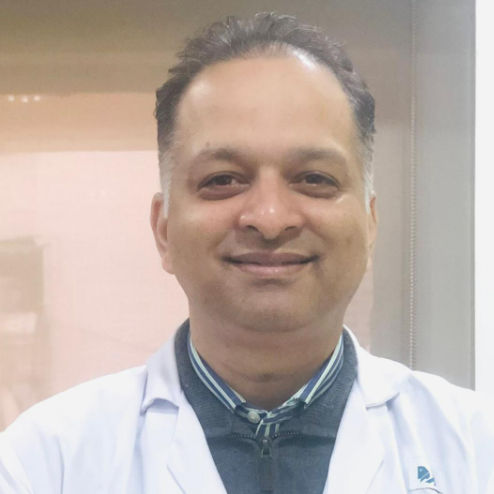
Dr. Rajeev Shandil
Gastroenterology/gi Medicine Specialist
15 Years • MBBS, DNB (Internal Medicine), DNB (Gastroenterology)
Noida
Apollo Hospitals Sector 26, Noida
More articles from Liver Cancer
Frequently Asked Questions
1. What are the first noticeable signs of liver cancer?
Early liver cancer often has no symptoms. As it progresses, symptoms may include unexplained weight loss, loss of appetite, upper abdominal pain or swelling, nausea, fatigue, and jaundice (yellowing of the skin and eyes).
2. Is liver cancer hereditary?
While most cases are linked to acquired risk factors like infection or lifestyle, a small percentage can be influenced by rare inherited metabolic diseases like hemochromatosis. A family history of liver cancer can also slightly increase risk, often due to shared environmental or viral exposure.
3. Can you get liver cancer without drinking alcohol?
Absolutely. Yes. While alcohol is a major risk factor, many people develop liver cancer without ever drinking. The most common non-alcoholic causes are chronic hepatitis B or C infections and non-alcoholic fatty liver disease (NAFLD/NASH) driven by obesity and diabetes.
4. How can I check my liver health at home?
You cannot thoroughly check your liver health at home. While being mindful of symptoms like fatigue or jaundice is important, many liver diseases are silent. The best approach is to see a doctor for blood tests (liver function tests) and, if needed, imaging. Apollo24|7 offers convenient home collection for these crucial blood tests, making it easier to get checked.
5. Are there specific foods that prevent liver cancer?
No single food prevents cancer, but a diet supportive of liver health is rich in fruits, vegetables, whole grains, and lean proteins. Focus on foods high in fiber and antioxidants. Crucially, avoid processed foods, sugary drinks, and excessive saturated fats to prevent fatty liver disease, a significant risk factor.
